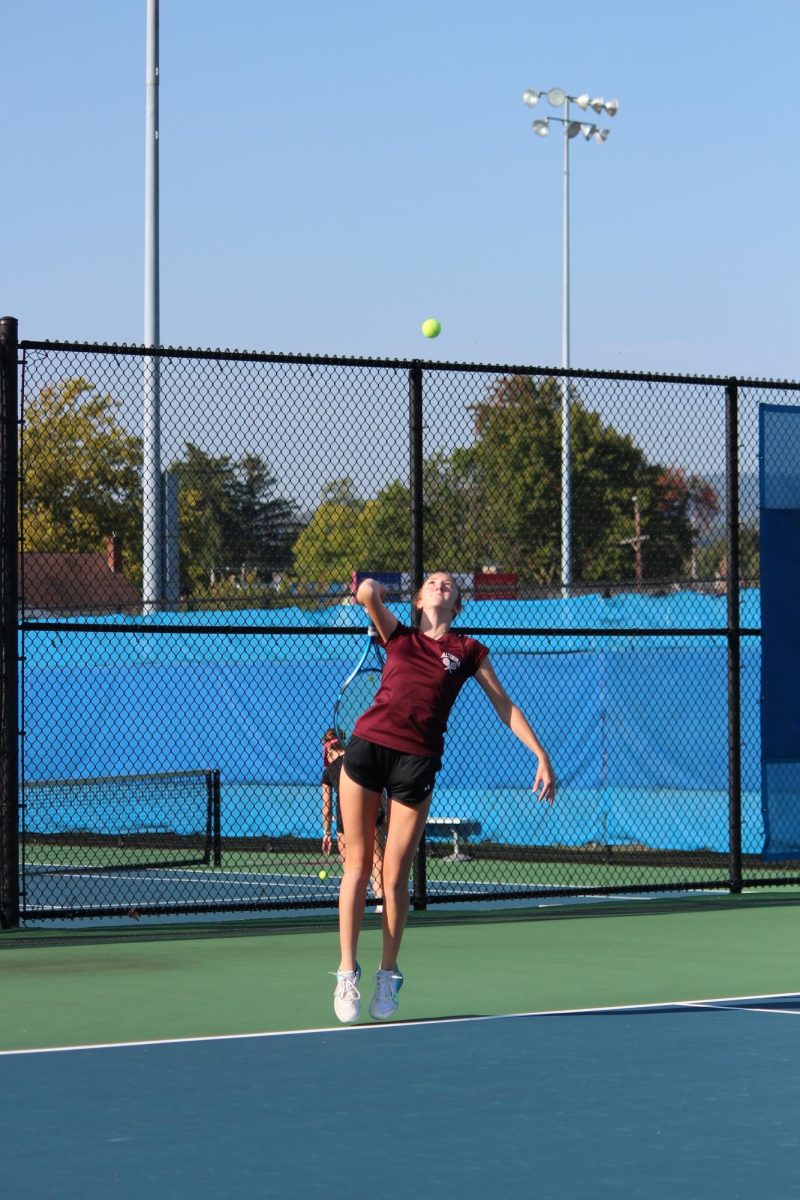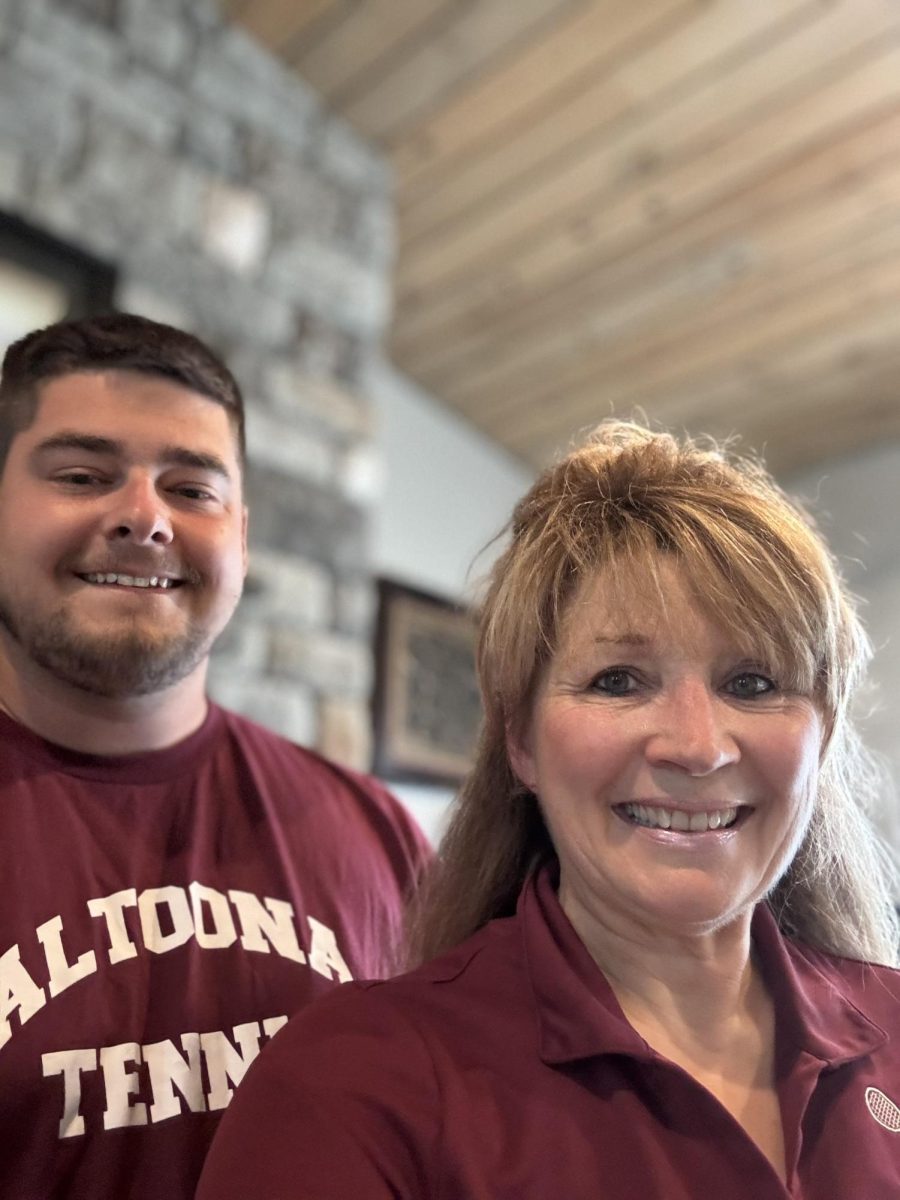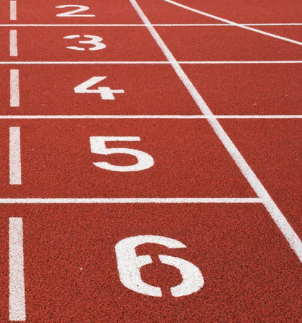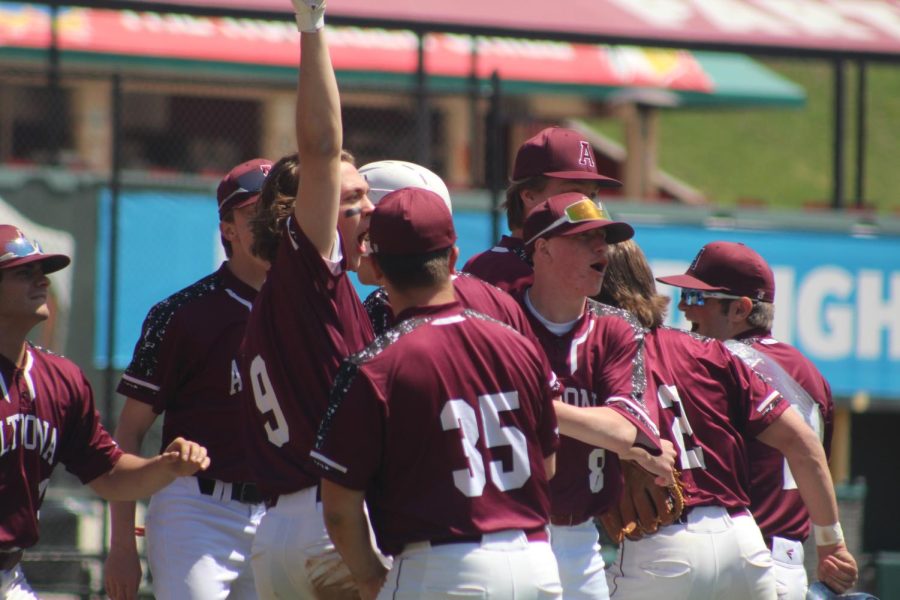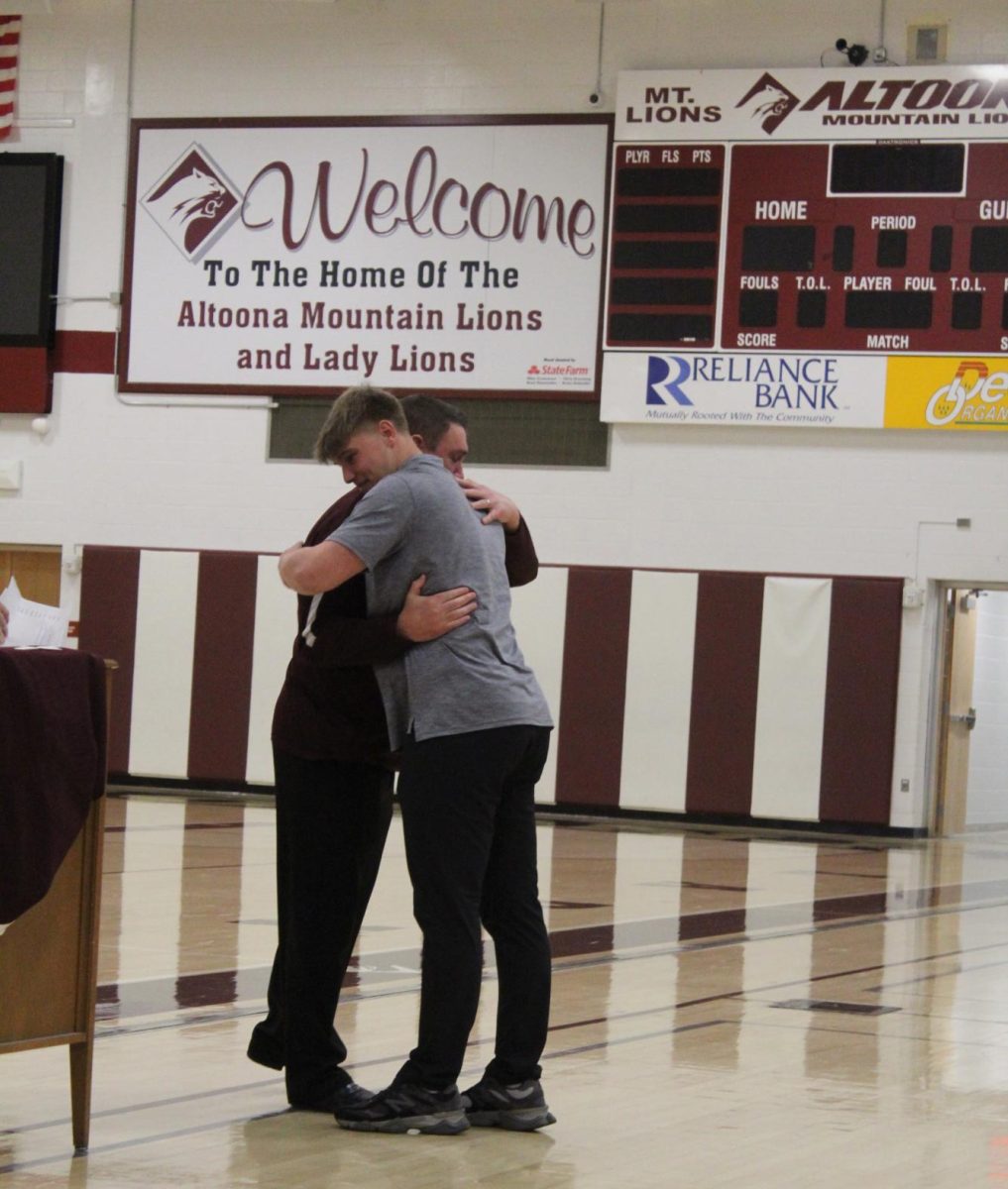Athlete superstitions are a part of sports culture, where beliefs and rituals often intertwine with performance. For many athletes, these superstitions provide a sense of comfort and confidence, which helps them feel mentally prepared or even lucky before stepping onto the field or court.
Brionna Hudson
Brionna Hudson, a freshman and starter for the girls’ basketball team, has a unique pre-game ritual: eating Goldfish.
Q: How did you first develop your pre-game ritual?
A: “I brought Goldfish to practice, and everyone started making jokes about it. After that, it kind of just became a thing, and I started eating them before every game.”
Q: Are there any particular superstitions or beliefs tied to your rituals?
A: “Yes, I had a really big game and didn’t eat my Goldfish. I ended up losing, and since then, I’ve always been really cautious about making sure I have them.”
Q: How important do you think pre-game rituals are in terms of performance?
A: “I think they’re really important. If you don’t have one or fail to do it, you can really get in your head and mess up the flow.”
Isabelle Wolford and Andie Kephart
Senior Isabelle Wolford and freshman Andie Kephart are part of the swim team. They have a special routine, performing the “Parent Trap” handshake before every meet.
Q: How did you first develop your pre-game ritual?
A: “I saw on Tik Tok the “Parent Trap’ handshake, so I sent the video to Izzy, and we decided to make a handshake. But we decided to switch it up a bit so then it would be our own handshake.”
Q: Do you feel these rituals help you feel more mentally prepared, or do they mostly affect your mood or confidence?
A: ”I would say it mostly, for me, boosts my confidence and puts me in a better mood for the race.”
Q: Have you ever shared your superstitions with teammates? What do they think about it?
A: “Once our team noticed our little handshake, some people would not leave us alone about it,” Wolford said. “They would think it’s fun and cute but also thought it served no real purpose. Our coach liked it though.”
Q: Has there ever been a time when you felt a superstitious act really made a difference in your performance?
A: “Yes, there was this one meet in Huntington. It was our last meet of the season, and we forgot to do our handshake and I did so bad that meet.”
James Meszaros
James Meszaros has a meaningful pre-game ritual: praying. Before every track meet, he takes a moment to reflect and seek guidance, centering himself spiritually to prepare for the challenges ahead on the field.
Q: How did you first develop your pre-game ritual?
A: “ Im not really sure, its just something ive always done.”
Q: Are there a particular game or moment where your ritual played a significant role in your performance or outcome?
A: “I have a specific ritual which I pray in each meet which just gives me hope. The hope it gives me always helps me succeed.”
Q: What does your pre-game routine say about you as an athlete or person?
A: “My pre-game routine shows that I’m someone who values focus and calmness over chaos.”
Maddison Marketta
Madison Marketta has a distinctive pre-game ritual: tapping her shoulders with her rackets before each match.
Q: If you had to give your superstition or ritual a nickname, what would it be?
A: “If I had to give my superstition a nickname I would call it “the superstitious taps.”
Q: Have you ever made a change to your rituals based on a win or loss streak?
A: “Yes, usually through the match if I keep winning I won’t do my rituals as much. But if I keep losing I will start the “tapping” on my left shoulder instead of starting it on my right.”
Q: If something goes wrong during your ritual, such as forgetting a specific task or step, how does it affect your mindset for the game?
A: “If something goes wrong during the ritual it will through me off and cause me to have that mistake on my mind rest of the match.”
Skylar Irwin
Skylar Irwin has a unique pre-game ritual: dancing with her team. Before every match, she leads her teammates in a quick, energetic dance session, using movement to shake off nerves and build camaraderie.
Q: What type of music do you usually listen to before a match?
A: “I listen to a bunch of different genres, but they are all hype songs.”
Q: How does music help you shake off your nerves before a game?
A: “The music helps distract me from my nerves and refocuses my energy into excitement.”
Q: How does the music make you feel mentally and physically before stepping onto the court?
A: “The music makes me feel ready to go, and more confident.”
Q: What’s the atmosphere like when everyone is listening to music before the game? Do you feel it helps build team camaraderie?
A: “Everyone on the team starts to really get into the music, and we even lock ourselves into the team room to focus on just us, and not the other team outside. This definitely helps our team dynamic by allowing us to have fun together, and not get worked up before our matches.”


